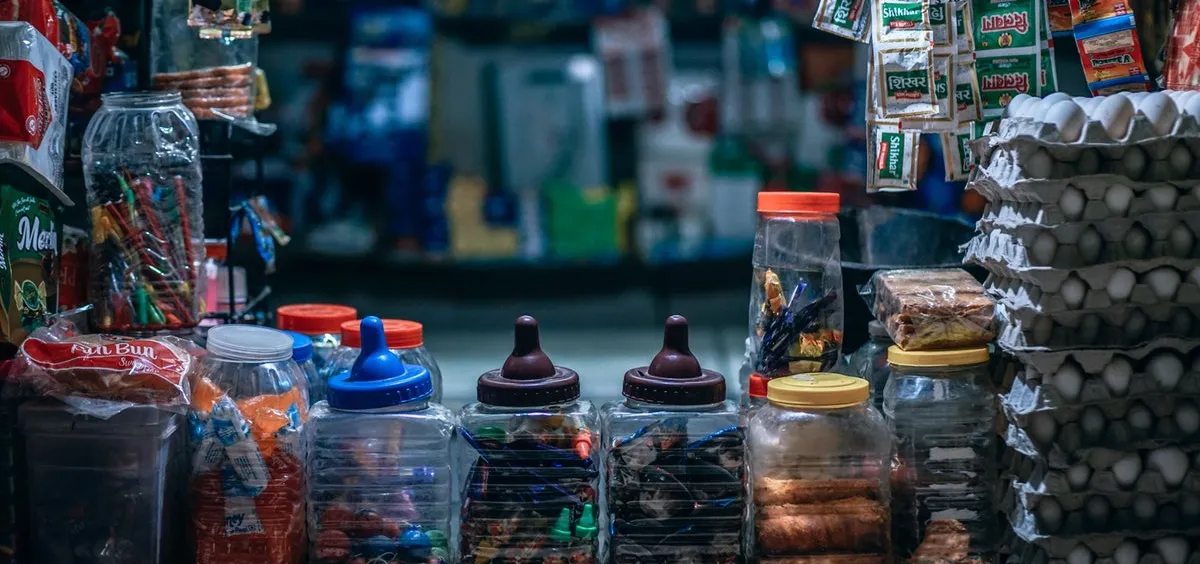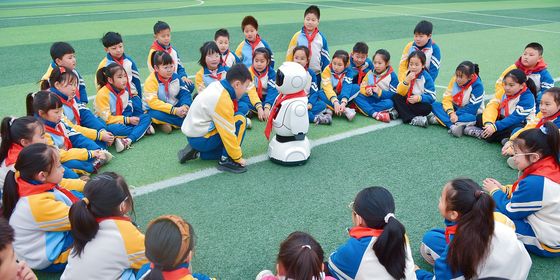Beijing wants one convenience store for every 1,000 residents—and AI-driven technology is here to help
As a student, Bianlifeng CEO Zhuang Chenchao is rumored to have devised strategies for chasing girls based off mathematical models—with a 100-percent success rate.
Now the convenience store king, who also founded travel app Qunar, is set to chase off mom-and-pop shops—and replace them with his own chains.
Beijing apparently has a convenience problem: In August, the capital set out the ambitious goal of having 6,000 convenience stores by 2021, reversing its reputation as a “graveyard of convenience chains”. One article, posted on the platform Huxiu, sarcastically proposed that “In Beijing, finding a convenience store is harder than finding a girlfriend.”
The Chinese Chain Store Management Association says the city has only one convenience store per 9,620 inhabitants, three or four times sparser than southern metropolises Shanghai, Guangzhou, and Shenzhen. Beijing is even lagging behind second-tier cities like Changsha, Taiyuan, and Urumqi. Consultancy firm Mickie Capital reports in October that the city now has 2,129 convenience stores, still 3,871 shy of its target, with only 30 months to go.
Big tech thinks it has the answer—usually, an aggressive mixture of AI, mass marketing, lobbying, and gentrification. But how did this problem even begin?
Many reasons come down to environmental factors. Harsh winters mean consumers are much less likely to be out at night, when 24-hour convenience stores may be the best shopping options. Moreover, Beijing’s markedly wide roads and barriers discourage passing trade from crossing over. In the past, chain stores have been hesitant to enter the capital; 7-Eleven opened its first Shenzhen store in 1992, 12 years before Beijing.
Uprooting existing competition has also been a challenge. Beijing is home to tens of thousands of mom-and-pop stores, from jianbing stands to oil-and-grain shops (粮油站) to the xiaomaibu (小卖部), the classic snack-and-soda kiosks that have served residential areas for generations.
Nevertheless, the government is resolute in closing the gap. In October, Beijing Party Secretary Cai Qi paid an official visit to a Bianlifeng store in Dongshuijing Hutong. Six days after the visit, the Beijing Municipal Commerce Commission released 19 measures to accelerate convenience store development, from relaxing restrictions on management and inspection to offering up to 5 million RMB of subsidies for new stores.
The most helpful measure has been cutting red tape for product quality checks, a hurdle that was stifling development in Beijing, where procedures are more tightly enforced than in the South. As the pace of city life quickens, supplying a wide range of hot and fresh food to time-pressed office workers is where conveniences chains can easily beat out their smaller grassroots opponents (though in practice, many of Beijing’s xiaomaibu have sold cooked food for decades without obtaining the necessary certification).
Yet danger also lies where profit is to be made. Increasing sales of fresh hot food also increases the risks relating to shelf-life and safety. With Bianlifeng selling food with a shelf-life of two hours, steady supply and demand is crucial for profitability. Running out during peak hours can be fatal to a store; customers are unlikely to be as irked if a mobile food stand commits the same mistake.
A surfeit of goods is even more harmful: not only can it lead to large amounts of waste, but also expired food, and consequently food poisoning, which, given the public’s extreme sensitivity to safety issues, can lead to lawsuits. For the thousands of mobile food stands in Beijing, angry customers and inspectors can be avoided by simply setting shop elsewhere.
Mainland brands are looking to overcome these challenges by jumping on the AI bandwagon. Bianlifeng, for instance, has recently begun using data to manage demand for all Beijing stores. As well as relieving the pressure on employees to make accurate daily estimates on how much product to send to each store, computerizing this crucial decision allows for multi-variable analyses that account for factors that a human would easily let slip, such as wind strength on a particular day. Moreover, AI also allows for stores to make adjustments to prices on the fly, thus decreasing the likelihood of wasted goods.
The future thus looks bright for Beijing’s convenience chain stores. The owners of mom-and-pop stores and food stands may be savvy, but driving automation are CEOs with prestigious university degrees –and an obsession with using mathematics to solve any problem, apparently.












